Filter by
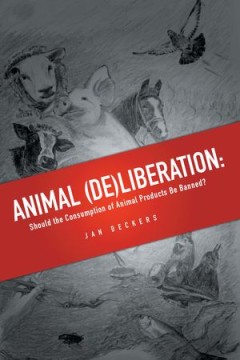
Animal (De) Liberation: Should The Consumption Of Animal Products Be Banned?
In this book, Jan Deckers addresses the most crucial question that people must deliberate in relation to how we should treat other animals: whether we should eat animal products. Many people object to the consumption of animal products from the conviction that it inflicts pain, suffering, and death upon animals. This book argues that a convincing ethical theory cannot be based on these importan…
- Edition
- -
- ISBN/ISSN
- 9781909188839
- Collation
- -
- Series Title
- -
- Call Number
- -
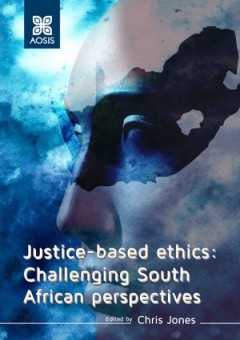
Justice-based Ethics
The book reflects academically on important and relevant ethical fields from a multidimensional South African context. The book challenges conventional borders from different ethical, theological, philosophical, economic and cultural perspectives with insight and expertise and seeks to add academic-ethical value, locally and globally, with its different points of departure deeply embedded in ju…
- Edition
- -
- ISBN/ISSN
- 9781928396710
- Collation
- -
- Series Title
- -
- Call Number
- -
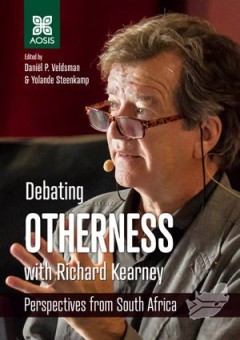
Debating Otherness With Richard Kearney
Richard Kearney is one of the leading global thinkers in both Continental philosophy and post-metaphysical philosophy of religion, as well as an esteemed Irish professor in philosophy, currently teaching at Boston College, Massachusetts, USA. Professor Kearney first visited South Africa in May as joint visiting academic of the Universities of Stellenbosch, Pretoria and North-West. The visit pro…
- Edition
- -
- ISBN/ISSN
- 9781928396635
- Collation
- -
- Series Title
- -
- Call Number
- -
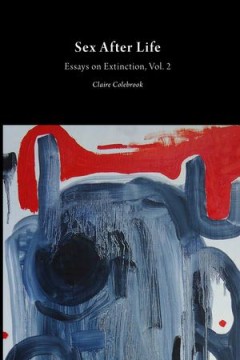
Sex After Life
Sex After Life aims to consider the various ways in which the concept of life has provided normative and moralizing ballast for queer, feminist and critical theories. Arguing against a notion of the queer as counter-normative, Sex After Life appeals to the concept of life as a philosophical problem. Life is neither a material ground nor a generative principle, but can nevertheless offer itself …
- Edition
- -
- ISBN/ISSN
- 9781607853008
- Collation
- -
- Series Title
- -
- Call Number
- -
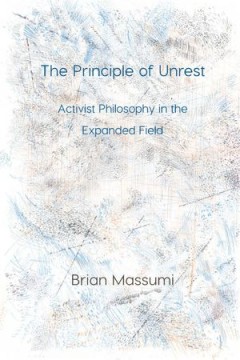
The Principle Of Unrest
There is no such thing as rest. The world is always on the move. It is made of movement. We find ourselves always in the midst of it, in transformations under way. The basic category for understanding is activity – and only derivatively subject, object, rule, order. What is called for is an ‘activist’ philosophy based on these premises. The Principle of Unrest explores the contemporary im…
- Edition
- -
- ISBN/ISSN
- 9781785420443
- Collation
- -
- Series Title
- -
- Call Number
- -
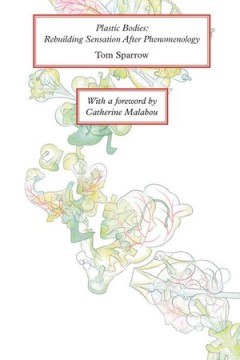
Plastic Bodies: Rebuilding Sensation After Phenomenology
Sensation is a concept with a conflicted philosophical history. It has found as many allies as enemies in nearly every camp from empiricism to poststructuralism. Polyvalent, with an uncertain referent, and often overshadowed by intuition, perception, or cognition, sensation invites as much metaphysical speculation as it does dismissive criticism. The promise of sensation has certainly not been …
- Edition
- -
- ISBN/ISSN
- 9781785420016
- Collation
- -
- Series Title
- -
- Call Number
- -
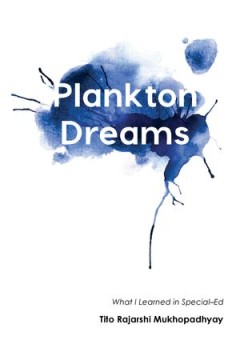
Plankton Dreams: What I Learned In Special-ed
In Plankton Dreams,Tito Rajarshi Mukhopadhyay crafts a proud, satiric style: the special ed student as literary troublemaker. 'Mother had always taught me to learn from circumstance,' he writes. 'Here, the circumstance was humiliation, a particularly instructive teacher.' 'But I’m not complaining,' he continues. 'Humiliation, after all, made me a philosopher.' For all of its comic effects, th…
- Edition
- -
- ISBN/ISSN
- 9781785420078
- Collation
- -
- Series Title
- -
- Call Number
- -
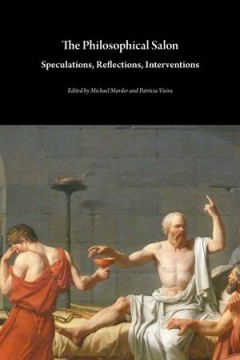
The Philosophical Salon: Speculations, Reflections, Interventions
Through the interpretative lens of today’s leading thinkers, The Philosophical Salon illuminates the persistent intellectual queries and the most disquieting concerns of our actuality. Across its three main divisions—Speculations, Reflections, and Interventions—the volume constructs a complex mirror, in which our age might be able to recognize itself with all its imperfections, shadowy sp…
- Edition
- -
- ISBN/ISSN
- 9781785420382
- Collation
- -
- Series Title
- -
- Call Number
- -

Ontological Catastrophe: ŽIžek And The Paradoxical Metaphysics Of German Id…
In Ontological Catastrophe, Joseph Carew takes up the central question guiding Slavoj Žižek philosophy: How could something like phenomenal reality emerge out of the meaninglessness of the Real? Carefully reconstructing and expanding upon his controversial reactualization of German Idealism, Carew argues that Žižek offers us an original, but perhaps terrifying, response: experience is possi…
- Edition
- -
- ISBN/ISSN
- 9781607853084
- Collation
- -
- Series Title
- -
- Call Number
- -

Occupy: A People Yet To Come
The term Occupy represents a belief in the transformation of the capitalist system through a new heterogenic world of protest and activism that cannot be conceived in terms of liberal democracy, parliamentary systems, class war or vanguard politics. These conceptualisations do not articulate where power is held, nor from where transformation may issue. This collection of essays by world-leading…
- Edition
- -
- ISBN/ISSN
- 9781785420047
- Collation
- -
- Series Title
- -
- Call Number
- -
 Computer Science, Information & General Works
Computer Science, Information & General Works  Philosophy & Psychology
Philosophy & Psychology  Religion
Religion  Social Sciences
Social Sciences  Language
Language  Pure Science
Pure Science  Applied Sciences
Applied Sciences  Art & Recreation
Art & Recreation  Literature
Literature  History & Geography
History & Geography